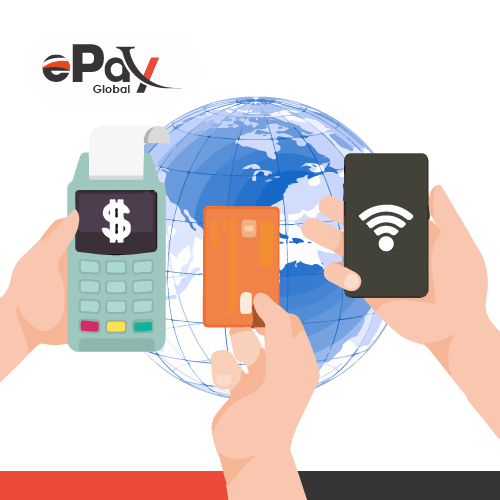Quite Frequently Asked Questions With Their Answers On An Offshore Payment Gateway

The offshore payment gateways are in significant demand, and merchants have many questions about them. An offshore gateway is essential for many businesses due to numerous reasons. The gateway companies receive many questions about it every day, and most of them are general. More or less, every business has some common questions, whether it is about safety or whether it is about the transaction speed, or anything else.
If you also have a business where you need to have an offshore payment gateway, then the blog below should certainly fulfill your thirst for information.
Here are several frequently asked questions that merchants and other people commonly ask for practical reasons or to gain knowledge. Have a look and if you feel like asking more, leave a question in the comment section.
Why do high-risk merchants desperately seek an offshore payment gateway?
Once a business gets the tag of a high-risk business, the traditional payment gateways that work with low-risk companies deny working with a high-risk merchant. The reason is quite apparent, the legal restrictions on a risky business are much higher, and the same rules have to be followed by its payment gateway. It is not simple to manage a risky business; with daily complicated operations, many legal restrictions apply. For example – high-risk companies usually have a significant transaction volume every month. Imagine how difficult it is to ensure the safety of the money received from global customers from varied locations. One small mistake and that customer will make the law of his country, chase you.
Also, it is a matter of specialization and professional terms. A low-risk payment gateway cannot work with a high-risk industry merchant. There are different payment system requirements for a low-risk or high-risk payment gateway. A high-risk payment gateway offshore also works on tax benefits, provides a bigger market, and processes high-volume transactions. A low-risk gateway does not have these features. Technically, it is not possible to make a local payment solution provider work on a large scale.
How Can I Find The Best Offshore Payment Gateway For My Business?
First of all, you need to depend on your research because that helps you stay away from myths and misguided information. The second thing is that you need to find a payment gateway that has specialization in your industry. For example – if you are an online casino merchant, confirm if the offshore payment gateway provider works for casinos or not.
Other vital points you need to consider are safety and cost. Also, the transaction speed is a big concern because, typically, high-risk businesses have a higher chargeback rate. If the customers find the payment procedure slow, they quickly demand their money–back. This point brings another point to attention: the payment solution company should also have a good chargeback management strategy. Perhaps, you do not know, but payment gateways suggest clever ways for their merchant clients how (the merchants) can manage chargebacks. Eskaypay offshore payment gateway solutions qualify on this parameter, and it specializes in high-risk industries. Also, it provides merchant accounts at an affordable cost and fantastic tax benefits.
What Type Of Businesses Majorly Need Offshore Payment Gateway Services?
Technically, there is no decided situation about what industry types exploit offshore payment gateway services more. Low-risk, medium-risk, and high-risk industry merchants may need such services. Any business that needs international credit card processing will always need an offshore online payment gateway provider. With a global client base, any industry needs offshore solutions for daily transactions.
Some of the famous clients of offshore payment gateways are online pharmacies, dating services, furniture, credit repair, e-cigarettes, weapon, travel, and credit repair. Etc. It all depends on the business type, product, customer base, and legal conditions. For example – legally, a high-risk merchant cannot take services from a low-risk payment gateway. Because usually, such businesses have offshore clients, the merchants have to choose offshore payment gateways. The global customers cannot pay in the merchant’s native currency.
Is Money Management Complex With An Offshore Payment Gateway Compared To a Local One?
No, it is just a myth that usually annoys the merchants, and due to this misconception, they even lose a good deal with a payment gateway. Many business owners even fear that international payment gateways keep merchants’ money. It is very complicated to take the money from the payment solution provider. Before you also fall prey to any such myth, you should see the other side of the coin.
First of all, it is never more complicated to manage money with a global payment gateway than any local one. In fact, with local payment gateways, you have limits, and it is not possible to expand a business after a limit. The reason is that they cannot accept payments from all global locations; also, they have fewer payment methods. On the other hand, the merchants can efficiently process the money with worldwide customers when it comes to an offshore payment gateway. Besides, you do not need to worry because payment gateways will not keep your money. Whether local or offshore, a payment gateway is just a bridge between the acquiring bank, credit card processor, and issuing bank. It has no legal right to stop or hold your money. According to the business requirements, the payment gateway offers customized solutions. There is no ‘one size fits all’ rule.
Conclusion
Answers to the frequently asked questions always solve all the powerful queries for people. The reason is that they always relate to the current scenario, and companies are always ready to clarify prospective and existing customers. Also, answering the questions works as a potential platform for payment solution providers to promote their services and catch the customers’ attention. Besides the above ones, the questions keep arising in the mind of the merchants, and it is good to ask them right away. More answers mean more knowledge, and more knowledge inspires a better practical approach.


